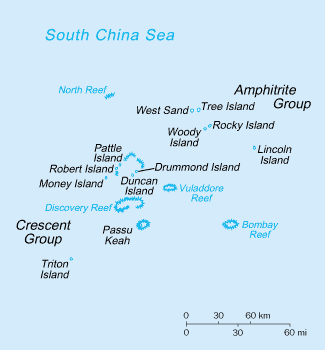|
Zhong (other)
Zhong can refer to * Zhong (surname), pinyin romanization of Chinese surnames including , etc. * Zhong County, a county of Chongqing, China * Zhongjian River, a river in Hubei, China * Bianzhong, a Chinese musical instrument similar to a bell * Cha zhong, a 3-piece tea brewing vessel, also known as a ''gaiwan'' * The Mean , concept of Chinese philosophy (see ''Doctrine of the Mean'') * Loyalty, one of the precepts in Confucianism Confucianism, also known as Ruism or Ru classicism, is a system of thought and behavior originating in ancient China, and is variously described as a tradition, philosophy, Religious Confucianism, religion, theory of government, or way of li .... See also * Chong (other) * 中 {{disambiguation ... [...More Info...] [...Related Items...] OR: [Wikipedia] [Google] [Baidu] |
Zhong (surname)
Zhong is pinyin transliteration of several Chinese surnames, including Zhōng (/鐘/), and Zhòng (). These are also transliterated as Chung (especially in Taiwan, Hong Kong and Malaysia), Cheong or Choong (in Malaysia), Tjung or Tjoeng (in Indonesia), and Chiong (in the Philippines). It is the 53rd most common surname in Mainland China. Notable people surnamed Zhong Zhōng /鐘/ *Alexa Chung (born 1983), English model and television personality *Arthur Chung (1918–2008), first president of Guyana *Basuki Tjahaja Purnama () (born 1966), Indonesian businessman, politician, former governor of Jakarta *Betty Chung (born 1947), Hong Kong actress and singer *Cheong Eak Chong (1888–1984), Singaporean entrepreneur *Gillian Chung (born 1980), Hong Kong singer and actress *Jamie Chung (born 1983), American actress *Jong Chien-wu, Taiwanese football manager *Jong Yeu-Jeng (born 1973), Taiwanese baseball player *Chung Chun-to, better known as Kenny Bee (born 1953), Hong Kong singer, so ... [...More Info...] [...Related Items...] OR: [Wikipedia] [Google] [Baidu] |
Zhong County
Zhong County or Zhongxian () is a county of Chongqing Municipality, China. The name "Zhong" (忠) means "loyalty." It is named after the historical story of General Ba Manzi, who chose to be killed to keep his Kingdom together. Emperor 李世民 Li Shimin of the Tang Dynasty named Zhong County "Loyalty County" to honor General Ba Manzi. The Shibaozhai Temple, which was endangered by the rising waters caused by the Three Gorges Dam, is located there. Zhong County has two Yangtze River crossings: the Zhongxian Yangtze River Bridge and Zhongzhou Yangtze River Bridge. History Linjiang County (临江县) was established under Ba Commandery (巴郡) in the Han dynasty. In Western Wei, Lin Prefecture (临州, Linzhou) was established, with Linjiang as its seat. In the Tang dynasty, it was renamed Zhong Prefecture (忠州, Zhongzhou, literally "loyal prefecture"). In 1913, Zhongzhou was replaced by Zhong County. Scenic places Lord Bai’s Memorial Hall is located in the west of Z ... [...More Info...] [...Related Items...] OR: [Wikipedia] [Google] [Baidu] |
Zhongjian River
Triton Island (; ) is the westernmost and southernmost of the Paracel Islands in the South China Sea. It is located on the southwest corner of Triton Reef and has an area of above sea-level. The reef including the island measures about in area. The island is administered by the People's Republic of China, and is also claimed by the Republic of China (Taiwan) and Vietnam. The island was historically known by the Chinese as ''Bànlù Zhì'' (), and as ''Luó Dǎo'' () to Chinese fishermen. Other Chinese sources have it named as 南建岛, as it was the southernmost point claimed by China until after 1933. The current Chinese name commemorates the Republic of China Navy warship ''ROCS Chung-chien'' () sent in 1946 to claim the Paracel Islands. History Lacking a native population, ownership of the Paracel Islands has been disputed since the early 20th century. In the aftermath of the First Indochina War, until 1974 Vietnam occupied Pattle Island, approximately northeast. Control ... [...More Info...] [...Related Items...] OR: [Wikipedia] [Google] [Baidu] |
Hubei
Hubei is a province of China, province in Central China. It has the List of Chinese provincial-level divisions by GDP, seventh-largest economy among Chinese provinces, the second-largest within Central China, and the third-largest among inland provinces. Its provincial capital at Wuhan serves as a major political, cultural, and economic hub for the region. Hubei is associated with the historical state of E that existed during the Western Zhou dynasty (771 BCE). Its name means 'north of the lake', referring to Dongting Lake. It borders Henan to the north, Anhui and Jiangxi to the east, Hunan to the south, and Chongqing and Shaanxi to the west. The high-profile Three Gorges Dam is located at Yichang in the west of the province. History The Hubei region was home to sophisticated Neolithic cultures. By the Spring and Autumn period (770–476 BC), the territory of today's Hubei formed part of the powerful Chu (state), State of Chu. Chu, nominally a tributary state of the Zh ... [...More Info...] [...Related Items...] OR: [Wikipedia] [Google] [Baidu] |
Bianzhong
''Bianzhong'' () () is an ancient China, ancient Chinese List of traditional Chinese musical instruments, musical instrument consisting of a set of bronze bells, played melodically. China is the earliest country to manufacture and use musical chimes. They are also called chime bells. These sets of chime bells were used as polyphonic musical instruments and some of these bells have been dated at between 2,000 and 3,600 years old. They were hung in a wooden frame and struck with a mallet. Using a wooden hammer and a rod to beat the bronze bell can make different pitch. Along with the stone chimes called ''bianqing'', they were an important instrument in China's ritual and court music going back to ancient times. Several sets of ''bianzhong'' were imported to the Korean court during the Song dynasty. Pronounced in Korean as ''pyeonjong'', the instrument became an important part in Korea's ritual and court music and is still in use. In Vietnam, the instrument, which was used in ceremo ... [...More Info...] [...Related Items...] OR: [Wikipedia] [Google] [Baidu] |
Gaiwan
A (; ) or () is a Chinese lidded bowl without a handle, used for the infusion of tea leaves and the consumption of tea. It was invented during the Ming dynasty. It consists of a bowl, a lid, and a saucer. History Prior to the Ming dynasty (1368–1644), tea was normally consumed from the vessel in which it was prepared. As described by the tea master Lu Yu, this special bowl had to be large enough to accommodate the implements and actions of tea brewing, though compact enough to be held comfortably in the hands for consumption. The term for this versatile piece of equipment was (; lit. 'tea bowl'). It was during the Ming dynasty that the innovations in both tea ritual and tea preparation gave rise to the gaiwan. File:德宏州博物馆-清代-傣族土司银碗 錾花银碗盖 小银碟.jpg, Qing dynasty metal gaiwans File:景德镇窑绿釉菊瓣形盖碗.JPG, Jingdezhen porcelain, Qianlong Reign (1736-1795), Qing Dynasty. File:清蓝地描金盖碗.jpg, Gilded Qing ... [...More Info...] [...Related Items...] OR: [Wikipedia] [Google] [Baidu] |
Doctrine Of The Mean
The ''Doctrine of the Mean'' or ''Zhongyong'' is one of the Four Books of classical Chinese philosophy and a central doctrine of Confucianism. The text is attributed to Zisi (Kong Ji), the only grandson of Confucius (Kong Zi). It was originally a chapter in the ''Classic of Rites''. The phrase "doctrine of the mean" occurs in Book VI, verse 29 of the ''Analects'' of Confucius, which states: The ''Analects'' never expands on what this term means, but Zisi's text, ''The Doctrine of the Mean'', explores its meaning in detail, as well as how to apply it to one's life. The application of Confucian metaphysics to politics and virtue ethics. The text was adopted into the canon of the Neo-Confucian movement, as compiled by Zhu Xi. While Burton Watson translated ''Zhōngyōng'' as ''Doctrine of the Mean'', other English-language translators have rendered it differently. James Legge in 1861 called it ''Constant Mean'', Pierre Ryckmans (writer), Pierre Ryckmans (aka Simon Leys) use ... [...More Info...] [...Related Items...] OR: [Wikipedia] [Google] [Baidu] |
Confucianism
Confucianism, also known as Ruism or Ru classicism, is a system of thought and behavior originating in ancient China, and is variously described as a tradition, philosophy, Religious Confucianism, religion, theory of government, or way of life. Founded by Confucius in the Hundred Schools of Thought era (c. 500 BCE), Confucianism integrates philosophy, ethics, and social governance, with a core focus on virtue, Harmonious Society, social harmony, and Filial piety, familial responsibility. Confucianism emphasizes virtue through self-cultivation and communal effort. Key virtues include ''Ren (philosophy), ren'' (benevolence), ''Yi (philosophy), yi'' (righteousness), ''Li (Confucianism), li'' (propriety), ''Wisdom, zhi'' (wisdom), and ''Xin (virtue), xin'' (sincerity). These values, deeply tied to the notion of ''tian'' (heaven), present a worldview where human relationships and social order are manifestations of sacred moral principles.. While Confucianism does not emphasize an ... [...More Info...] [...Related Items...] OR: [Wikipedia] [Google] [Baidu] |
Chong (other)
Chong may refer to: * Emperor Chong of Han, emperor of the Chinese Han Dynasty and the ninth emperor of the Eastern Han period (143-145) * Chong (surname), the romanization of several Chinese and Korean surnames * Chong or Pear people of Thailand and Cambodia ** Chong language * Chong or Limbu people of eastern Nepal, Bhutan, and northeastern India * ancient Chinese state 崇, allegedly attacked by King Wen of Zhou. See also *Chung (other) *Zhong (other) *Zhang (other) Zhang may refer to: Chinese culture, etc. * Zhang (surname) (張/张), common Chinese surname ** Zhang (surname 章), a rarer Chinese surname * Zhang County (漳县), of Dingxi, Gansu * Zhang River (漳河), a river flowing mainly in Henan * ''Zha ... {{disambiguation Language and nationality disambiguation pages ... [...More Info...] [...Related Items...] OR: [Wikipedia] [Google] [Baidu] |


